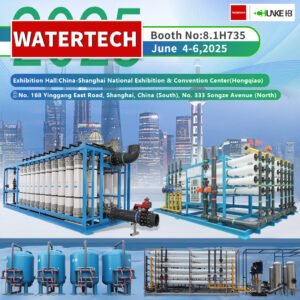Reverse Osmosis & Water Treatment in Ecuador
CHUNKE projects of Reverse Osmosis Water Treatment in Ecuador including different types of water treatment systems.
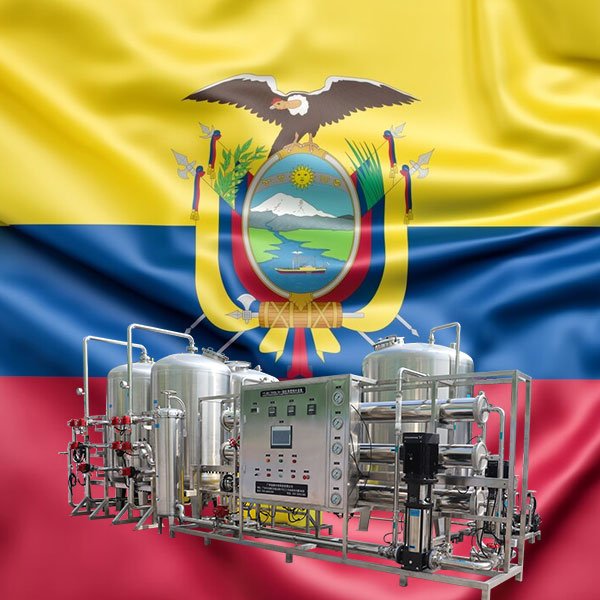
Ecuador, officially known as the Republic of Ecuador, is a northwestern South American nation. Interestingly, it’s Spanish name, República del Ecuador, translates to “Republic of the Equator”. In the native languages, it’s known as Ikwayur Ripuwlika in Quechua and Ekuatur Nunka in Shuar. Notably, it borders Colombia to the north, along with Peru to the east and south. Additionally, the Pacific Ocean forms its western boundary. Uniquely, Ecuador also claims the Galápagos Islands, located a significant 1,000 kilometers, or 621 miles, west of the mainland. The capital city of this diverse nation is Quito. However, its largest city, known for its vibrant culture and bustling streets, is Guayaquil.
The state of Ecuador’s economy
Surely, Ecuador is a democratic republic and a growing nation, where the economy mainly pivots on exports like petroleum and agricultural products. Functioning as a democratic presidential republic, it upholds a democratic system. It also holds key international links as a founding member of the United Nations and the Organization of American States. Besides, Ecuador is a crucial part of Mercosur, PROSUR, and the Non-Aligned Movement. Despite facing economic trials over the past decade, the country made commendable strides.
For instance, it saw a significant drop in poverty levels from 36.7% to 22.5% between 2006 and 2016 according to the Center for Economic and Policy Research. Concurrently, the annual per capita GDP growth improved to 1.5 percent, a significant leap from the previous 0.6 percent. Notably, the country’s Gini index, which measures economic inequality, dropped from 0.55 to 0.47, indicating a more balanced income distribution. This progress underlines Ecuador’s dedication to addressing economic disparities.
Total Renewable Water Resources in Ecuador
Between 1971 and 2020, Ecuador renewable water resources remained stable at around 442.4 billion cubic meters per year
- Renewable surface water: 432 billion cubic meters per year
- Renewable groundwater: 134 billion cubic meters per year
- Renewable water resources per capita :25,075 cubic meters per year
Meanwhile, CHUNKE provides wide range of filtration and economical solutions based on the Ecuador’s water resources. So, our water treatment in Ecuador becomes more popular accordingly.
- Surface water is water from river, lake which can be treated using different methods, such as Ultrafiltration Systems, Brackish Water RO accordingly.
- Desalination can be used for water from ocean, or sea source, which can be treated using Sea Water Reverse Osmosis Systems; Desalination Systems
- Ground Water or brackish water is from water located in the pore space of soil and rock “Borehole well”, which can be treated using Reverse Osmosis Systems, Borehole Water Filtration Systems, Well Water Filtration Systems, Chemical Dosing, UV Water Sterilizer accordingly.
- Government water supply, which could have high level of hardness or high level of chlorine, can be treated with Water Softener System, Media Water Filters.
CHUNKE Projects of Water Treatment in Ecuador
Meanwhile, CHUNKE designs and produces water treatment systems that meet the World Health Organization requirements. Our pumps, dosing pumps, reverse osmosis membranes, electronic components, and drives are all world-renowned suppliers. So, our water treatment in Ecuador is suitable for drinking.
CHUNKE has over 15 years of experience as a global provider of B2B water treatment solutions for a variety of applications and industries, we offer a large selection of all types of reverse osmosis, ultrafiltration, electrodeionization and water treatment systems to meet your industrial needs accordingly. So, CHUNKE’s extensive global experience in engineering and manufacturing allows us to pre-engineer and customize water treatment and reverse osmosis systems to meet a wide range of customer requirements and specifications.
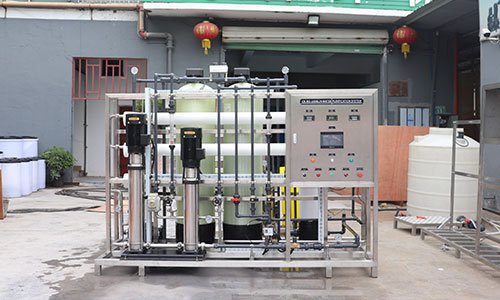
1000L Brackish Water Equipment
System
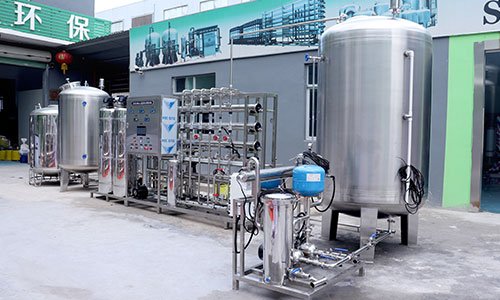
1000L secondary reverse osmosis + EDI ultrapure water equipment
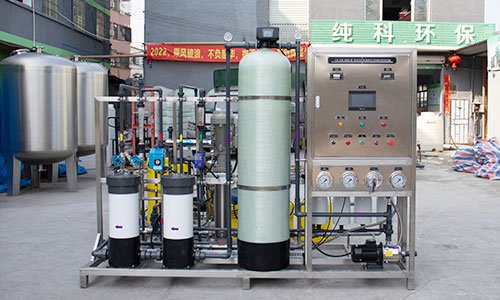
500L Seawater Desalination Equipment
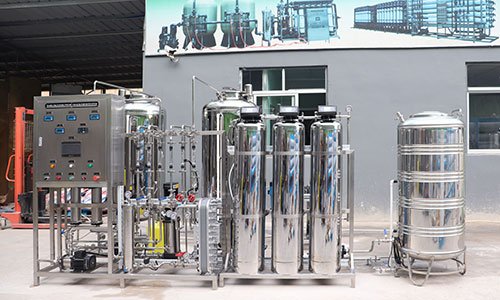
250L Secondary Reverse Osmosis + EDI Ultrapure Water Equipment
Water Resources in Ecuador
Ecuador possesses abundant water resources, with a total renewable water volume of 432 cubic kilometers. However, the efficient management and treatment of this water are crucial due to water scarcity and contamination concerns. The World Bank reports that at least 80 countries worldwide struggle with water shortages, and a staggering two billion people lack access to clean water. In Ecuador, water pollution from oil production, urban areas, and agricultural activities further exacerbates the challenge.
Surface Water Treatment
Surface water, originating from rivers, lakes, and freshwater wetlands, serves as a crucial water source for communities across Ecuador. To ensure its suitability for consumption, various treatment methods can be employed.
Ultrafiltration Systems
Ultrafiltration systems have emerged as an effective solution for treating surface water. These systems utilize a membrane-based filtration process that removes suspended solids, bacteria, and viruses from the water. By employing ultrafiltration technology, contaminants are separated from the water, resulting in clean and safe drinking water.
Brackish Water Reverse Osmosis
In areas where brackish water is prevalent, such as coastal regions, Brackish Water Reverse Osmosis (BWRO) systems are employed. These systems utilize semi-permeable membranes to remove dissolved salts and impurities from brackish water, making it suitable for various applications, including drinking water supply and industrial processes.
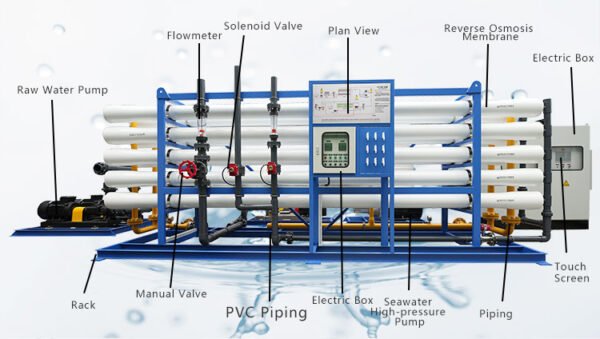
Desalination of Seawater
Ecuador has a long coastline, Accordingly,, Ecuador can leverage desalination technologies to tap into the vast potential of seawater as a water source.
Seawater Reverse Osmosis Systems
Seawater Reverse Osmosis (SWRO) systems are widely utilized for the desalination of seawater. By employing high-pressure membranes, SWRO systems effectively remove salts, minerals, and other impurities, producing fresh water that meets stringent quality standards. These systems play a vital role in providing potable water for coastal communities and supporting industries dependent on a reliable water supply.
Desalination Systems
Apart from SWRO, other desalination systems, such as Multi-Stage Flash (MSF) and Electrodeionization (EDI), can be employed to meet the water demands of specific industries. MSF systems utilize heat to evaporate seawater and subsequently condense the steam to produce fresh water. EDI systems employ ion-exchange membranes to remove ionic impurities, producing high-purity water suitable for industrial applications.
Groundwater Treatment
Groundwater, sourced from wells and boreholes, plays a significant role in meeting Ecuador’s water demands. However, this water source often requires treatment to eliminate contaminants and ensure its quality.
Reverse Osmosis Systems
Reverse Osmosis (RO) systems are commonly used to treat groundwater and brackish water. These systems utilize a semi-permeable membrane that selectively removes dissolved solids, organic compounds, and other impurities, resulting in clean and safe water for various applications.
Chemical Dosing and UV Water Sterilizers
In some cases, chemical dosing and UV water sterilizers are employed to treat groundwater. Chemical dosing involves the addition of specific chemicals to neutralize contaminants, while UV water sterilizers utilize ultraviolet radiation to eliminate harmful microorganisms.
Government Water Supply Treatment
Government water supply systems in Ecuador may face challenges such as high levels of hardness or chlorine. To address these issues and ensure the delivery of safe water to households and industries, specialized treatment methods are employed.
Water Softener Systems
Water softener systems are utilized to remove excessive levels of hardness caused by minerals such as calcium and magnesium. These systems employ ion-exchange resins to replace the hardness ions with sodium ions, resulting in softened water.
Water Filters
Water filters are commonly used in government water supply systems to remove chlorine, sediment, and other contaminants. Various types of filters, including activated carbon filters and media water filters, effectively remove impurities, enhancing the quality of the water supply.
Water Treatment Solutions in Ecuador
To address the water challenges faced by Ecuador, numerous companies specialize in providing innovative and sustainable water treatment solutions. These companies offer a wide range of technologies and equipment tailored to Ecuador’s unique requirements.
Chunke is Trusted Water Treatment Supplier from China
Reverse osmosis water treatment plays a crucial role in addressing the water challenges faced in Ecuador. By utilizing advanced RO systems and complementary water treatment technologies, clean and safe drinking water can be made available to both military personnel and the local population. Wastewater treatment solutions further contribute to environmental sustainability and public health. So, Applying the lessons learned from previous water supply operations, Ecuador can enhance its water treatment efforts and ensure a sustainable supply of clean and safe drinking water for its people. With the implementation of innovative and efficient water treatment solutions, reverse osmosis continues to be a valuable tool in the pursuit of clean water in Ecuador.
Chunke Water Treatment‘s expertise in producing high-quality reverse osmosis systems has contributed to improving water treatment capabilities in Ecuador. So, their reliable and efficient RO plants have been implemented in various projects across the country, ensuring access to clean and safe drinking water.

